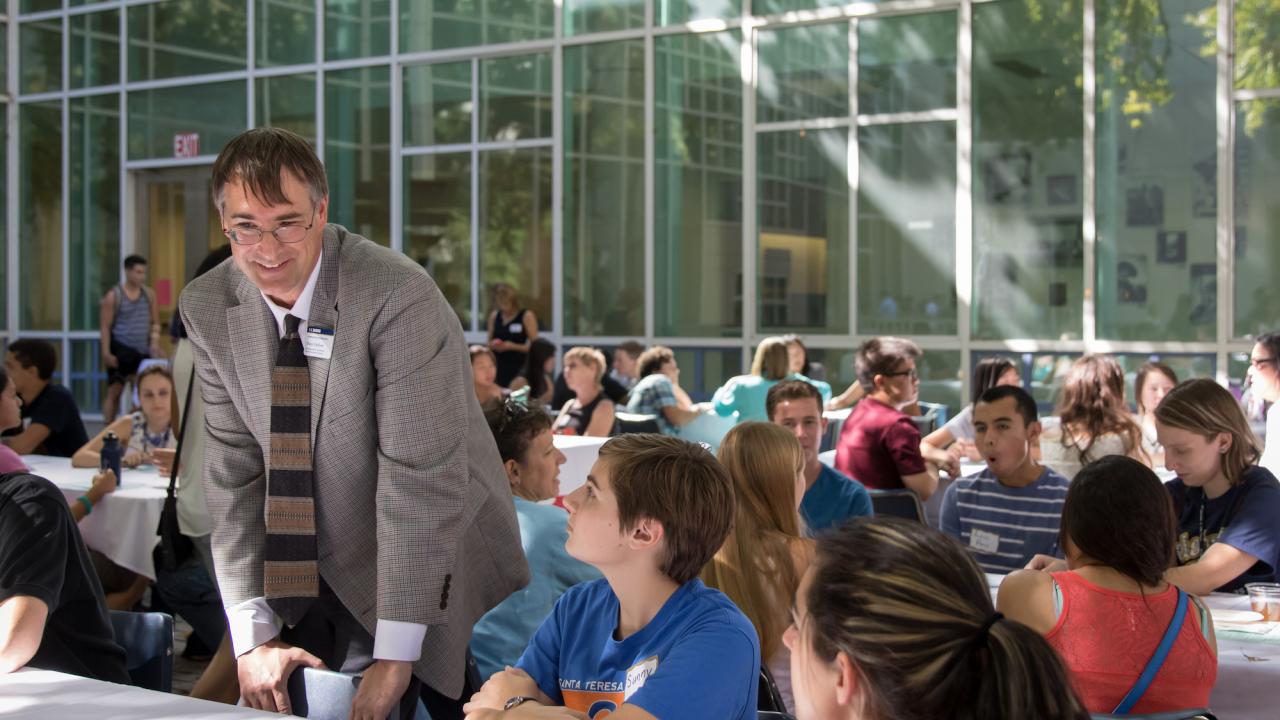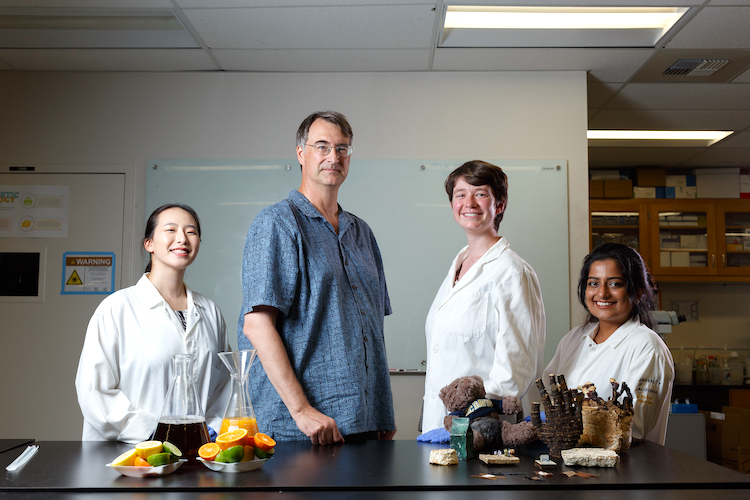
Dave Furlow Steps Down as Honors Director, Associate Dean
Dave Furlow, Professor of Neurobiology, Physiology, and Behavior, will step down from his positions as Associate Dean for Undergraduate Education, Director of the University Honors Program, and Director of the First Year Seminars program at the end of summer. Furlow has been a quiet force in Undergraduate Education since 2015 when he took on his leadership role, overseeing the development of the newly-restructured honors program and doubling and diversifying first-year seminar offerings. Furlow's scientific background and simultaneous appreciation for the liberal arts led to innovative programming for both programs, creating true interdisciplinary approaches to solving difficult problems.
Honors: Diversity, Innovation, and a Four-Year Curriculum
Furlow took on directorship of the University Honors Program one year after it was restructured to merge the Integrated Studies Honors Program and Davis Honors Challenge into a single, visionary four-year curriculum. Under his leadership, the new program implemented a plan to engage students in meaningful academic experiences throughout their undergraduate careers, from lower-division honors sections of GE and prerequisite courses to a capstone senior project.

The program expanded its rich tradition of fostering innovative courses during Furlow’s tenure through collaborations such as the award-winning BioDesign Challenge series, a Data Sciences sequence, Bioethics, and the Mellon-supported SHAPE (Science, Humanities and Arts: Process and Engagement) courses in collaboration with the Mondavi Center for the Performing Arts and the Davis Humanties Institute.
At the same time, the program made expanding diversity, equity, and inclusion a priority both in recruitment and retention of students. The program been recognized nationally as one of the top honors programs at research institutions for how well it reflects the campus’ overall underrepresented student population. The incoming first-year class will be the largest and most diverse cohort to date, and the the honors class of 2021 is the largest cohort to complete the four-year program.
In 2019, he led program alumni and campus leadership in a celebration of 50 years of Honors at UC Davis. With significant strides in building philanthropic investment, the program is approaching its goal of providing a recognized scholarship for every entering student.
First-Year Seminars Double Offerings, Expand Scope
Furlow also led the First Year Seminars program through a dramatic expansion in its offerings, nearly doubling course offerings to ensure that every first-year student, including transfer students, could take a seminar. The seminars provide access to small classes taught by dedicated faculty, providing incoming students with a singular opportunity to help all students build connections and gain a sense of belonging in the classroom. Course offerings remained strong even in the current remote environment, with approximately 4,500 students enrolled in 312 seminars this academic year.
Furlow brought his commitment to fostering undergraduate research to develop FYS-CUREs, first-year seminars offering course-based undergraduate research experiences that allow first-year students to participate in faculty-led research. Under Furlow's leadership a variety of seminar categories were added, including FirstGen Seminars, SHAPE courses in partnership with the Mondavi Center, and Global Learning Seminars in partnership with the Global Affairs.
Research and Sabbatical
Furlow has maintained an active research program investigating the control of gene expression by nuclear hormone receptors during development, and continued to offer major-required courses in his home department. He will begin a sabbatical year in October, returning to the Marine Biological Laboratory in Woods Hole, MA where he has been a regular visiting scientist and summer course instructor.
An internal search to bring faculty leadership to Undergraduate Education, the University Honors Program, and the First Year Seminars program will launch this summer.
